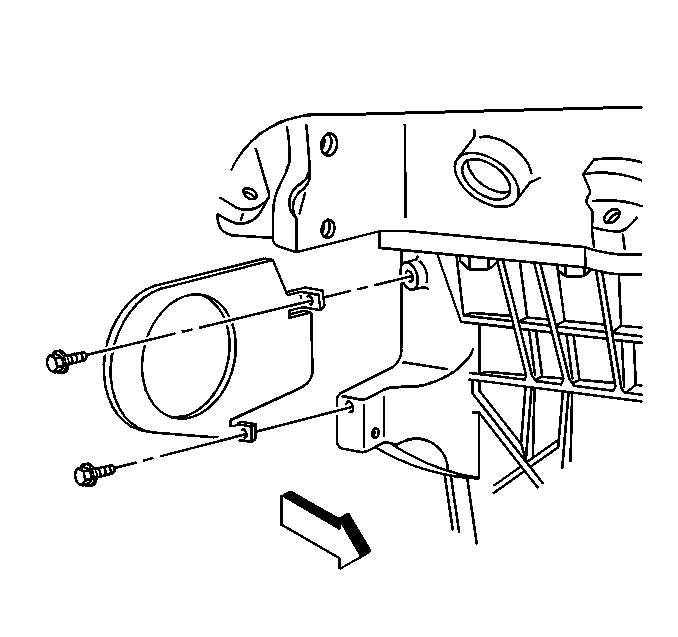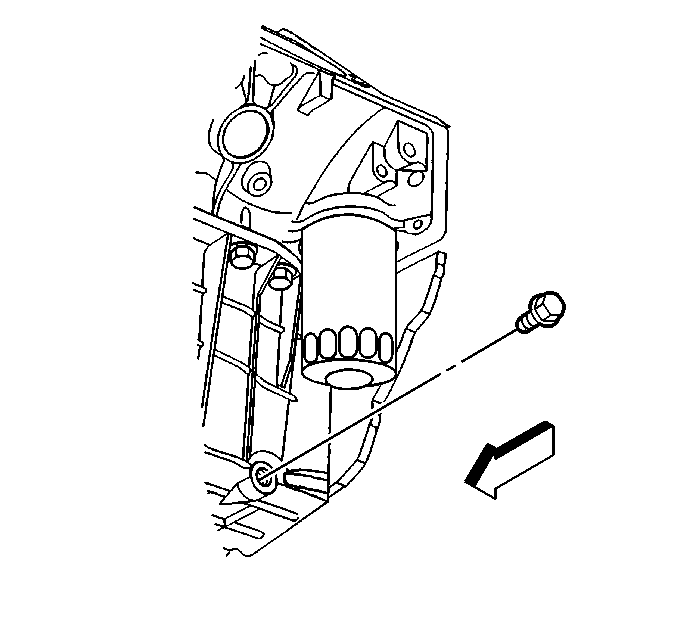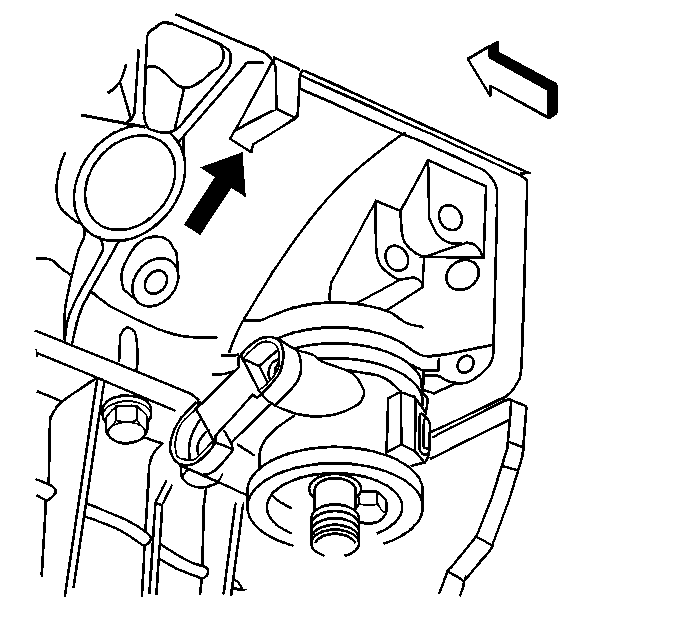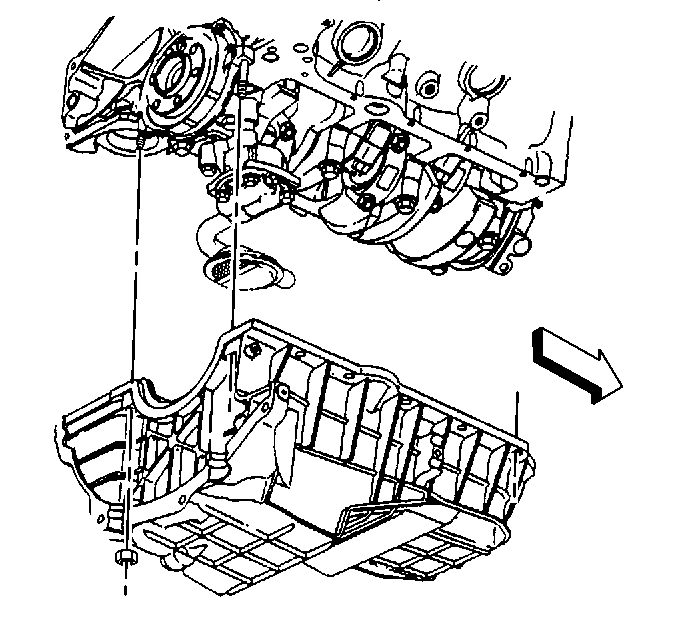Removal Procedure
- Disconnect the battery negative cable. Refer to Battery Replacement in Engine Electrical.
- Remove the oil level indicator.
- Raise the vehicle. Refer to Lifting and Jacking the Vehicle in General Information.
- Remove the starter motor. Refer to Starter Motor Replacement in Engine Electrical.
- Remove the bolts and transmission cover.
- Remove the engine oil pan drain plug and drain the engine oil into a suitable container.
- Remove the oil filter adapter. Refer to Oil Filter Adapter and Bypass Valve Assembly Replacement .
- Remove the bolt holding the oil cooler pipe retainer to the oil pan.
- Remove the bolt holding the bracket for the starter wire harness and the transmission cooler pipes.
- Using a jack on the square tab (left side shown) at the rear of the engine block, raise the engine.
- Raise the engine only enough to access the engine mount (through-bolts).
- Remove the front engine mount (through-bolts). Refer to Engine Mount Replacement .
- Remove the access plugs for the oil pan rear nuts.
- Remove the following oil pan fasteners:
- Remove the transmission to oil pan bolts.
- Remove the oil pan from the engine block. Refer to Oil Pan Removal .
- Clean all sealing surfaces. Refer to Oil Pan Clean and Inspect and Engine Block Cleaning and Inspection .
Caution: Before servicing any electrical component, the ignition and start switch must be in the OFF or LOCK position and all electrical loads must be OFF, unless instructed otherwise in these procedures. If a tool or equipment could easily come in contact with a live exposed electrical terminal, also disconnect the negative battery cable. Failure to follow these precautions may cause personal injury and/or damage to the vehicle or its components.




Notice: When raising or supporting the engine for any reason, do not use a jack under the oil pan, any sheet metal, or the crankshaft pulley. Due to the small clearance between the oil pan and the oil pump screen, jacking against the oil pan may cause the pan to be bent against the pump screen. This will result in a damaged oil pickup unit.

| 14.1. | Remove ten oil pan bolts. |
| 14.2. | Remove two nuts at the crankshaft rear oil seal. |
Installation Procedure
- Install the engine oil pan and a NEW oil pan gasket. Refer to Oil Pan Installation .
- Install the transmission to oil pan bolts.
- Install the access plugs for the oil pan rear nuts.
- Install the bolt holding the bracket for the starter motor wiring harness and the transmission cooler pipes.
- Lower the engine.
- Install the engine mount (through-bolts) and nuts. Refer to Engine Mount Replacement .
- Install the oil pan drain plug.
- Install the oil filter adapter. Refer to Oil Filter Adapter and Bypass Valve Assembly Replacement .
- Install the bolt holding the oil cooler pipe bracket to the oil pan.
- Install the transmission cover bolts.
- Install the starter motor. Refer to Starter Motor Replacement in Engine Electrical.
- Lower the vehicle.
- Install the oil level indicator.
- Fill the engine with engine oil. Refer to the Owner's manual for the recommended engine oil and the capacity.
- Connect the battery negative cable. Refer to Battery Replacement in Engine Electrical.

Notice: Use the correct fastener in the correct location. Replacement fasteners must be the correct part number for that application. Fasteners requiring replacement or fasteners requiring the use of thread locking compound or sealant are identified in the service procedure. Do not use paints, lubricants, or corrosion inhibitors on fasteners or fastener joint surfaces unless specified. These coatings affect fastener torque and joint clamping force and may damage the fastener. Use the correct tightening sequence and specifications when installing fasteners in order to avoid damage to parts and systems.
Tighten
Tighten the transmission to oil pan bolts to 40N·m (29 lb ft).


Tighten
Tighten the bracket bolt to 12 N·m (106 lb in).


Tighten
Tighten the drain plug to 25 N·m (18 lb ft).
Tighten
Tighten the oil cooler bracket bolt to 12 N·m
(106 lb in).

Tighten
Tighten the transmission cover bolts to 12 N·m (106 lb in).
